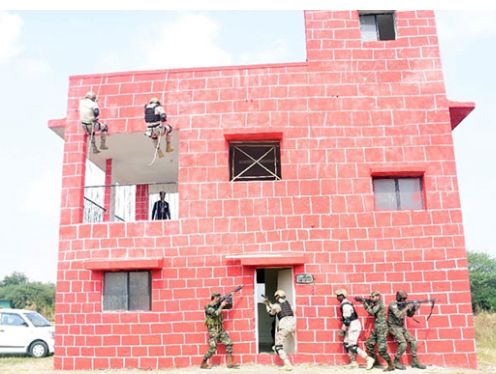Colombo, November 30: The 9th edition of annual India- Sri Lanka bilateral Exercise MITRA SHAKTI was conducted at Foreign Training Node in Pune, India from 16-29 Nov 2023.
The Indian contingent comprised of 120 personnel from the Maratha Light Infantry Regiment and 15 Air Warriors and officers from Indian Air Force (IAF). The Sri Lankan side was represented by 117 personnel from 53 Infantry Division and 06 personnel from Sri Lanka Air Force. Government of India deployed IAF IL-76 aircraft to facilitate the travel of the Sri Lankan contingent to Pune for the exercise.
MITRA SHAKTI-IX was the first time that the annual exercise saw participation of the two Air Forces in addition to the two Armies, making it the first bi-service edition. Based on the success of MITRA SHAKTI – VIII, the exercise was upgraded from a Combined Arms concept to bi-service level. This demonstrates the ever-enhancing Defence co-operation between the two countries to fight common threats effectively, including terrorism.

In addition, MITRA SHAKTI-IX was special as it witnessed deployment of drones and counter unmanned aerial systems besides helicopters. Army Martial Arts Routine (AMAR), Combat reflex shooting and Yoga was also included as part of the exercise curriculum. This edition was also gender inclusive, with both sides saw participation of women officers and soldiers.
MITRA SHAKTI is one of the largest annual bilateral exercises in the region, held alternatively in India and Sri Lanka. It is designed to jointly rehearse sub-conventional operations under Chapter VII of the United Nations Charter, which authorizes the Security Council to take enforcement measures, including the use of military force, to address the threats to international peace and security. The exercise helps in building proficiency in tackling transnational terrorism, conduct of joint tactical operations and building combat skills. It further enhances interoperability and mutual understanding between both the Armed forces in line with India’s ‘Neighbourhood First’ policy and vision of ‘Security and Growth for all in the Region (SAGAR)’.
END



























































